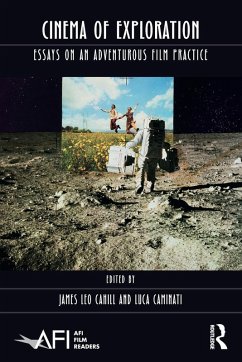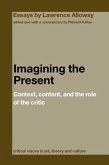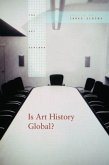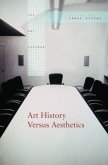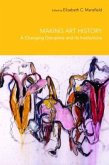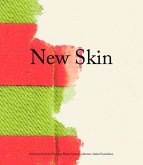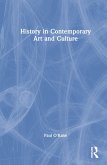Drawing together 18 contributions from leading international scholars, this book conceptualizes the history and theory of cinema's century-long relationship to modes of exploration in its many forms, from colonialist expeditions to decolonial radical cinemas to the perceptual voyage of the senses made possible by the cinematic apparatus.
This is the first anthology dedicated to analysing cinema's relationship to exploration from a global, decolonial, and ecological perspective. Featuring leading scholars working with pathbreaking interdisciplinary methodologies (drawing on insights from science and technology studies, postcolonial theory, indigenous ways of knowing, and film theory and history), it theorizes not only cinema's implication in imperial conquest but also its cutting-edge role in empirical expansion and experiments in sensual and critical perception. The collected essays consider filmmaking in cross-cultural contexts and films made in or about peoples in South America, Asia, Africa, Indigenous North America, as well as polar, outer space, and underwater exploration, with famous figures such as Jacques Yves Cousteau alongside amateur and scientific filmmakers.
The essays in this collection are ideal for a broad range of scholars, graduate students, and advanced undergraduate students in cinema and media studies, cultural studies, and cognate fields.
This is the first anthology dedicated to analysing cinema's relationship to exploration from a global, decolonial, and ecological perspective. Featuring leading scholars working with pathbreaking interdisciplinary methodologies (drawing on insights from science and technology studies, postcolonial theory, indigenous ways of knowing, and film theory and history), it theorizes not only cinema's implication in imperial conquest but also its cutting-edge role in empirical expansion and experiments in sensual and critical perception. The collected essays consider filmmaking in cross-cultural contexts and films made in or about peoples in South America, Asia, Africa, Indigenous North America, as well as polar, outer space, and underwater exploration, with famous figures such as Jacques Yves Cousteau alongside amateur and scientific filmmakers.
The essays in this collection are ideal for a broad range of scholars, graduate students, and advanced undergraduate students in cinema and media studies, cultural studies, and cognate fields.
Through an expansive optic and re-imagining of film's deep imbrication with exploration, this rich collection views cinema and exploration as mutually informing and vital allies in understanding twentieth century human history and our current crisis in the age of the Anthropocene. The authors productively take up the charge of discerning cinema in diverse contexts of exploration and critically engage with how adventure itself has long been a driving force and useful metaphor for cinema and/as epistemological practice.
Alison Griffiths, Distinguised Professor, The City University of New York
A remarkable transdisciplinary anthology exploring cinematic image-work in relation to issues of exploration, travel, colonial visual culture, experimental ethnographic film, and more broadly in relation to human encounters with intensive natural phenomena that confounds those who observe and participate in them. This collection will inspire and be useful to scholars in the human sciences, particularly media and visual anthropologists, who are willing to experiment with the new capacities of the cinematic.
Tarek Elhaik, Associate Professor of Anthropology, University of California, Davis and author of The Incurable-Image: Curating Post-Mexican Film and Media Arts.
In this intellectually rich set of essays, cinematic practices and ideologies of exploration are brought into illuminating contact. The authors in this collection read the spectacles of the spectacular that lie at the heart of 'cinemas of exploration' through the material circumstances and exploitations of their production. In so doing, the politics of 'exploration' are laid bare and placed in productive tension with the promises of enlightenment or adventure that such films tend to offer.
Lisa Messeri, Assistant Professor of Anthropology, Yale University
Exploration is cinema's greatest, its most singular and enduring attribute, and so there is no overstating the importance of this stunning anthology. It takes a Fantastic Voyage through astonishing episodes that illuminate cinema's 'Copernican vocation' to displace humans by exploring the befuddling world in which we co-exist. Cahill and Caminati lay out a shrewd itinerary leading into the 'body' of the book where, chapter after chapter, we discover how cinema has evolved to bring within its purview unimaginable inner and outer worlds. As the probing coda proclaims, cinema is still mid-journey. Explore this book and you will explore a medium and an art that is as alive today as it was for Lumière and Mélies.
Dudley Andrew, author of What Cinema Is!
What an adventure! Cinema of Exploration productively unsettles any claim that the world pictured is a world known much less mastered. This volume offers surprising readings of a range of genres and terrains, from "pith-hat" safari movies to the microscopic, psychedelic, and atmospheric cinema of cosmonauts, aquanauts and even "psychonauts." A critique of the imperial projects underwriting exploration and environmental degradation, the essays collected here unfold a history and theory of cinema that is curious about the remote, unseen, overlooked, and as-yet unknown possibilities of both cinema and our marvelous, fragile world.
Jennifer Fay, author of Inhospitable World: Cinema in the Time of the Anthropocene
Cinema studies once overlooked such primary material, but this collection's assembly of a roster of films formerly considered "minor" exemplifies a welcome opening up of the field to media in its fuller range of influence... The book joins together questions that cut across the often separate philosophical domains of ideology and ontology: Does exploration in cinema always embody a power dynamic, and is it a description of an attitude inscribed by the apparatus itself?... Cinema of Exploration sifts through the utopian promises, challenges, and dead ends of the medium's eventful first century and a quarter. In taking on this job, the book scouts out new paths for envisioning the role of the moving image as we pivot toward uncertain futures.
Jennifer Lynn Peterson for Critical Inquiry, July 2021
... a stimulating assortment of essays that expand conversations about art and instructional films, experimental "psychonauts" and scuba documentarists, aestheticanalysis, and reception studies... Editors James Leo Cahill and Luca Caminati bring an expansive approach to this perennial topic by taking adventurous media practices... and looking at them in an array of contexts, through varied, interdisciplinary methodologies.
Mariana Johnson for Film Quarterly, 2021
Alison Griffiths, Distinguised Professor, The City University of New York
A remarkable transdisciplinary anthology exploring cinematic image-work in relation to issues of exploration, travel, colonial visual culture, experimental ethnographic film, and more broadly in relation to human encounters with intensive natural phenomena that confounds those who observe and participate in them. This collection will inspire and be useful to scholars in the human sciences, particularly media and visual anthropologists, who are willing to experiment with the new capacities of the cinematic.
Tarek Elhaik, Associate Professor of Anthropology, University of California, Davis and author of The Incurable-Image: Curating Post-Mexican Film and Media Arts.
In this intellectually rich set of essays, cinematic practices and ideologies of exploration are brought into illuminating contact. The authors in this collection read the spectacles of the spectacular that lie at the heart of 'cinemas of exploration' through the material circumstances and exploitations of their production. In so doing, the politics of 'exploration' are laid bare and placed in productive tension with the promises of enlightenment or adventure that such films tend to offer.
Lisa Messeri, Assistant Professor of Anthropology, Yale University
Exploration is cinema's greatest, its most singular and enduring attribute, and so there is no overstating the importance of this stunning anthology. It takes a Fantastic Voyage through astonishing episodes that illuminate cinema's 'Copernican vocation' to displace humans by exploring the befuddling world in which we co-exist. Cahill and Caminati lay out a shrewd itinerary leading into the 'body' of the book where, chapter after chapter, we discover how cinema has evolved to bring within its purview unimaginable inner and outer worlds. As the probing coda proclaims, cinema is still mid-journey. Explore this book and you will explore a medium and an art that is as alive today as it was for Lumière and Mélies.
Dudley Andrew, author of What Cinema Is!
What an adventure! Cinema of Exploration productively unsettles any claim that the world pictured is a world known much less mastered. This volume offers surprising readings of a range of genres and terrains, from "pith-hat" safari movies to the microscopic, psychedelic, and atmospheric cinema of cosmonauts, aquanauts and even "psychonauts." A critique of the imperial projects underwriting exploration and environmental degradation, the essays collected here unfold a history and theory of cinema that is curious about the remote, unseen, overlooked, and as-yet unknown possibilities of both cinema and our marvelous, fragile world.
Jennifer Fay, author of Inhospitable World: Cinema in the Time of the Anthropocene
Cinema studies once overlooked such primary material, but this collection's assembly of a roster of films formerly considered "minor" exemplifies a welcome opening up of the field to media in its fuller range of influence... The book joins together questions that cut across the often separate philosophical domains of ideology and ontology: Does exploration in cinema always embody a power dynamic, and is it a description of an attitude inscribed by the apparatus itself?... Cinema of Exploration sifts through the utopian promises, challenges, and dead ends of the medium's eventful first century and a quarter. In taking on this job, the book scouts out new paths for envisioning the role of the moving image as we pivot toward uncertain futures.
Jennifer Lynn Peterson for Critical Inquiry, July 2021
... a stimulating assortment of essays that expand conversations about art and instructional films, experimental "psychonauts" and scuba documentarists, aestheticanalysis, and reception studies... Editors James Leo Cahill and Luca Caminati bring an expansive approach to this perennial topic by taking adventurous media practices... and looking at them in an array of contexts, through varied, interdisciplinary methodologies.
Mariana Johnson for Film Quarterly, 2021

